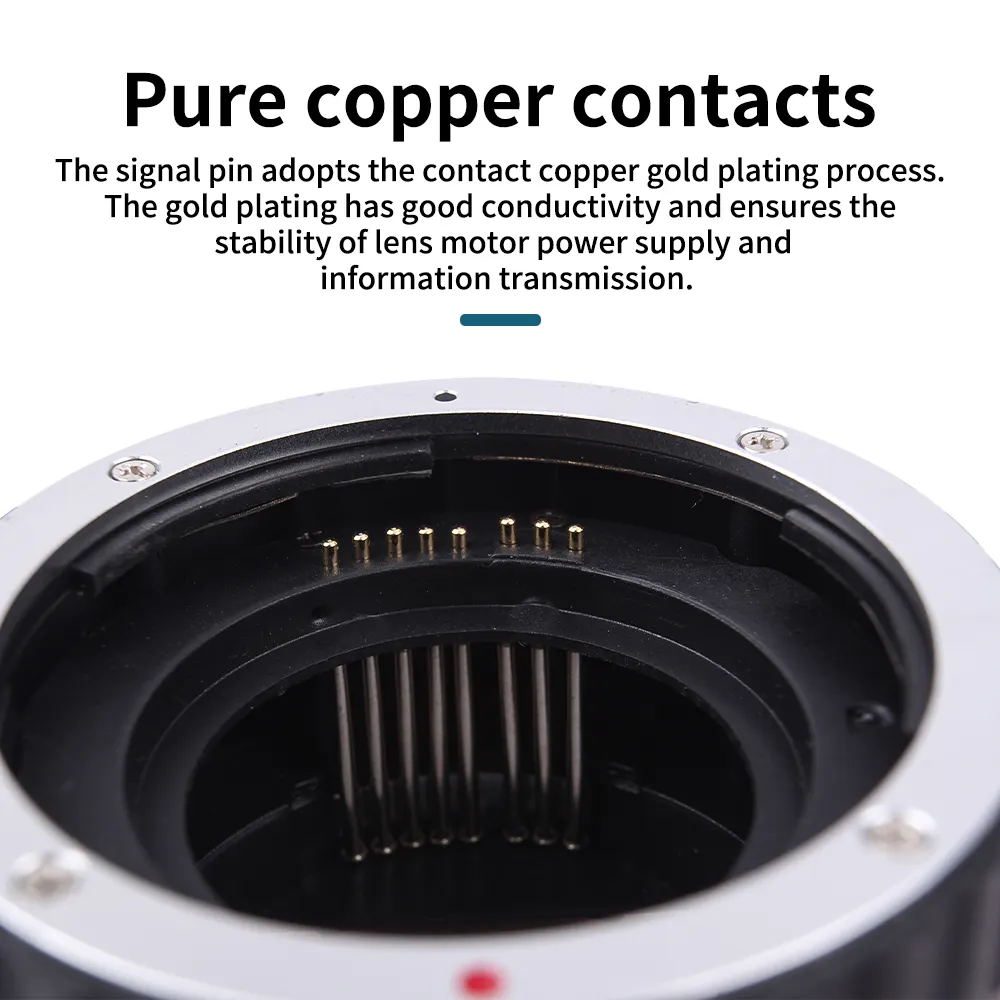

Time:2025-03-28 Views:1

Aging resistance is an important characteristic of macro lens adapters, as it affects their long - term performance and usability.
Material Degradation over Time
The materials used in macro lens adapters can degrade over time due to various factors. Metals like aluminum alloy and brass are generally more resistant to aging compared to plastics. However, even metals can be affected by environmental factors. For example, aluminum alloy may experience corrosion when exposed to moisture and certain chemicals. In a humid environment, the surface of the aluminum alloy adapter may develop a layer of oxide, which can gradually eat away at the material. Although this process is relatively slow, over a long period, it can weaken the adapter's structure. Brass, on the other hand, can be affected by tarnishing. Exposure to air and certain sulfur - containing compounds can cause a layer of tarnish to form on the surface of the brass adapter. While tarnish does not directly affect the mechanical strength of the adapter, it can be aesthetically unappealing and may also lead to issues with electrical conductivity if the adapter has any electrical components.
Effect of Temperature and Humidity
Temperature and humidity are significant factors in the aging of macro lens adapters. Extreme temperatures, both hot and cold, can cause the materials to expand and contract. In a hot environment, plastics may become soft and more prone to deformation. If a plastic - bodied adapter is left in a car on a hot summer day, the high temperature can cause the adapter to warp, affecting its fit and functionality. Cold temperatures can make some materials, especially plastics, more brittle. A sudden change in temperature can also create internal stress within the adapter, which may lead to cracks over time. Humidity, as mentioned earlier, can cause corrosion in metal adapters. In addition, high humidity can promote the growth of mold and mildew on plastic adapters, which not only damages the appearance but can also weaken the material.
UV Exposure and Aging
UV exposure from sunlight can also have a detrimental effect on macro lens adapters, especially those made of plastic. UV rays can break down the chemical bonds in plastic materials, causing them to become discolored, brittle, and less flexible. Over time, this can lead to cracks and a loss of structural integrity. Even adapters that are not directly exposed to sunlight but are stored in a location with some UV penetration, such as near a window, can be affected. To mitigate the effects of UV exposure, some manufacturers use UV - resistant coatings on plastic adapters. However, these coatings may wear off over time, especially with repeated cleaning or exposure to harsh environmental conditions.
Read recommendations:
video camera quick release plate Procurement